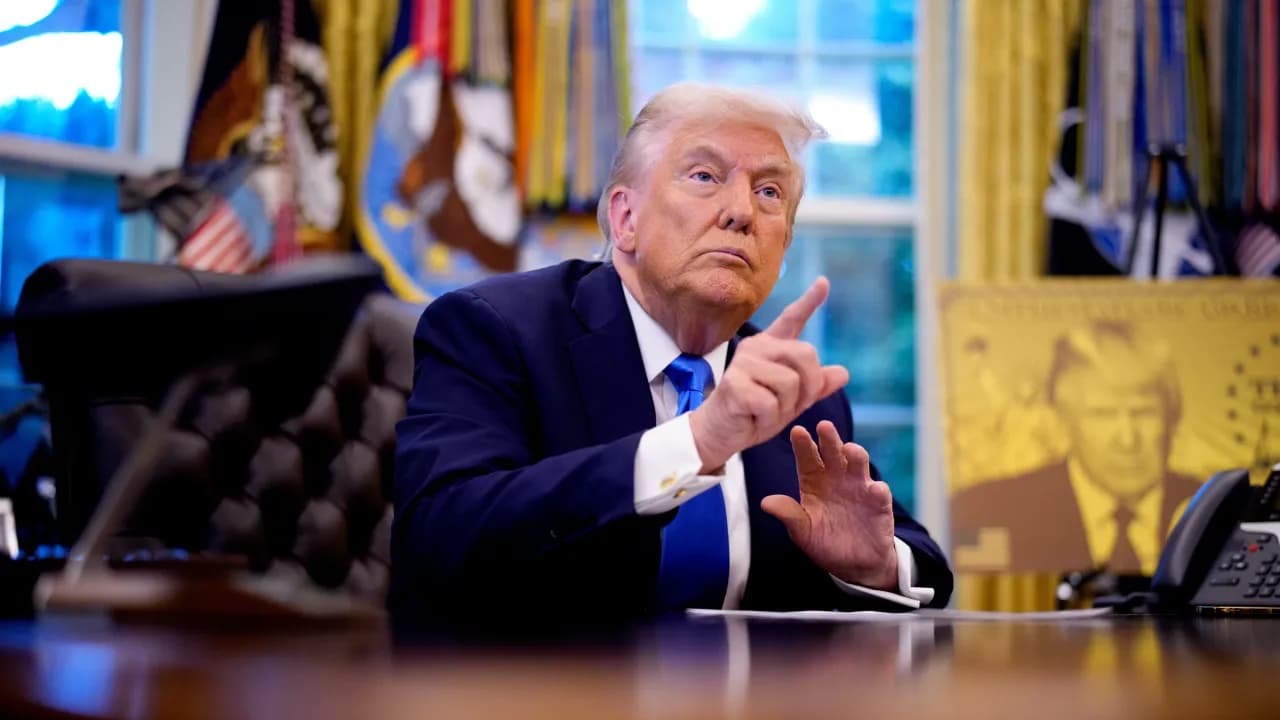The White House later clarified that the new order does not apply to current visa holders and for renewals, and will impact applicants in the next lottery cycle, which starts around March 2026.
President Donald Trump’s executive order imposing a one-time $100,000 H-1B visa processing fee for immigrant workers has had repercussions across the tech and financial industries, sending airfares to the U.S. spiraling upward.
The order came into effect at 12:01 a.m. ET on Sunday. In a panic reaction, skilled workers from overseas who were on holiday or on official trips scrambled to return to the U.S. before the deadline. The White House later clarified that the new order does not apply to current visa holders and for renewals, and will impact applicants in the next lottery cycle, which starts around March 2026.
The new cost marks a 1,000% increase, and with the U.S. issuing 85,000 new H-1B visas per year, a payment of $8.5 billion per year would be involved, according to the capital market newsletter Kobeissi Letter. About 73% of the H-1B program comes from India, and 13% from China.
The iShares MSCI India ETF (INDA) was down 0.80% in overnight trading. On Stocktwits, sentiment toward the exchange-traded fund (ETF) flipped to ‘bearish’ (44/100) as of late Sunday, from ‘bullish’ a day ago, although the message volume stayed low.
The INDA ETF is up 2.47% year-to-date (YTD) compared to the 14.24% and 17.54% gains, respectively, for the SPDR S&P 500 ETF (SPY) and the Invesco QQQ Trust (QQQ).
Chaos All Around
Amid the chaos, ticket prices from India to the U.S. spiked, with a one-way ticket from New Delhi to New York costing Rs. 70,000 from the standard fare of around Rs. 37,000 to 40,000, according to local online news portal Moneycontrol. Airlines and travel portals saw a surge in traffic to their websites.
To add fuel to the fire, 4Chan, a notorious message board, has launched “Operation Clog the Toilet” to block Indians from booking tickets to the U.S. The modus operandi is: opening multiple tabs on the India-U.S. flight routes, initiating checkouts, and then not deliberately completing purchases, thus locking out H-1B visa holders from returning to the U.S.
A video posted by a passenger on the flight from San Francisco to Dubai on Instagram said they were left waiting for over three hours for the flight to take off amid the cancellation of tickets by many passengers, according to a NBC News report.
In a statement released by the Indian Ministry of External Affairs on Saturday, New Delhi said, “The full implications of the measure are being studied by all concerned, including by Indian industry, which has already put out an initial analysis clarifying some perceptions related to the H1B program.”
India, however, said the measure will likely have “humanitarian consequences by way of the disruption caused for families.”
Corporations React
U.S. corporations, primarily from the tech and financial services industries, reportedly sent memos and advisories to their immigrant workers regarding the new visa norms.
According to the Kobeissi Letter, the top 15 companies having H-1B visa holders on their rolls, including Amazon, Cognizant, Ernst & Young, and TCS, would have incurred an additional $7.5 billion per year in expenses if the new order were to have also applied to existing holders. Amazon reportedly has 11,000 employees on H-1B visas.
Amazon stock rose modestly overnight, while Cognizant and Microsoft shares fell about 0.40%.
Internal memos from Amazon, Microsoft, Alphabet and Goldman Sachs shared by Business Insider showed that these companies called upon their immigrant workers and families (those on H-4 visas) to stay in the U.S.
“If you have H-1B or H-4 status and are outside the U.S.: Try to return before tomorrow’s deadline if possible. We realize this is short notice but returning soon is advisable and you should make every effort possible to clear U.S. customs before 12:00 a.m. EDT (9:00 p.m. PDT) on Sunday, September 21, 2025,” Amazon told its employees.
Microsoft reportedly advised its employees with H-1B status and H-4 dependents who were in the U.S. to remain in the U.S. to avoid being denied reentry, and those outside the U.S. to return before the deadline. “We want to be able to follow up with each individual and provide support and guidance as they try to return within the next 28 hours,” the software giant said.
Netflix co-founder Reed Hastings, however, welcomed the development. “I’ve worked on H1-B politics for 30 years. Trump’s $ 100,000-per-year tax is a great solution. It will mean H1-B is used just for very high-value jobs, which will mean no lottery needed, and more certainty for those jobs,” he said in a post on X.
For updates and corrections, email newsroom[at]stocktwits[dot]com.
